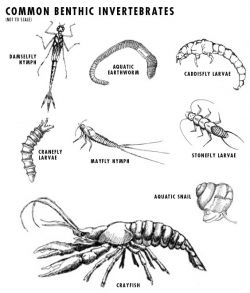News from: September 2016
Surface Water Quantity
Current Water Conditions Statements
(flooding or drought conditions)
Water plays a central role in all activities within a watershed. The rain that falls on the ground flows to the river and sustains all forms of life. All physical and biological activities within a watershed are intimately connected to water. Therefore, the knowledge of its occurrence, distribution, movement and functions is indispensable in understanding a watershed and all the living beings therein.
Within the Rideau Valley, water levels and stream flow, precipitation and snowpack have been systematically recorded for many years.This information can be analyzed to understand various aspects of the water cycle (or hydrologic cycle) and their impacts on the watershed. Monitoring streamflow and precipitation allows water managers to identify risk-prone areas and better respond to drought or flood conditions.
Surface Water Quality
The RVCA has gathered information on surface water quality since the early 1970s. Today, the RVCA collects data four water quality monitoring programs:
- Provincial Water Quality Monitoring Network (Water Chemistry)
- RVCA Baseline Monitoring Program (Water Chemistry)
- Watershed Watch (Water Chemistry)
- Benthic Invertebrate Sampling (Water Biology)
Results from these monitoring programs are reviewed and reported on through our catchment and subwatershed reports.
Groundwater
Groundwater has only recently been recognized as a vital natural resource. Ground water is an important source of drinking water for many in the Rideau watershed. Contamination of local groundwater is a growing concern and groundwater flow in bedrock aquifers has only recently started to be characterized (theory, methods, tools and models specific to fractured rock aquifers). Groundwater as a “science” is still young.
Since 2005, RVCA has been coordinating the Source Protection Program for the Mississippi-Rideau Source Protection Region (MRSPR). This work has involved undertaking a number of technical studies and the development of source protection plan policies for the MRSPR to protect shared municipal drinking water sources within our watersheds. Additional information about the local source protection program is available here: mrsourcewater.ca
Currently, the groundwater program at RVCA is small and primarily focuses on being a source of expertise for municipal planning services related to rural drinking water. The program also provides support to development applications near wetlands and groundwater recharge and discharge areas.
RVCA looks to learn more about our groundwater resources and their specific roles in the local hydrological cycle. We monitor and gather information at 16 wells at 13 locations in the Rideau Valley as part of the Ministry of the Environment and Climate Change’s (MOECC) Provincial Groundwater Monitoring Network (PGMN). The main goal of the PGMN program is to undertake long-term regional groundwater monitoring in order to be able to identify potential changes in groundwater quality or levels. RVCA also partners with provincial agencies, local municipalities and academia for special projects related to groundwater information management, subwatershed studies and groundwater surface water interactions.
Biology and Ecology
The streams and rivers in the Rideau Valley watershed are home to a variety of plants and animals.
RVCA staff collect information on the physical conditions of the watershed — vegetation, wetlands, shorelines, land uses. We also look at fish communities and benthic invertebrates. We look see how aquatic and terrestrial creatures interact with their environment. All this information is used to create a picture of the conditions of our streams, lakes, rivers and overall watershed. In turn, this information will set the management direction for the future.
Information is compiled and summarized in RVCA catchment reports and subwatershed reports.














